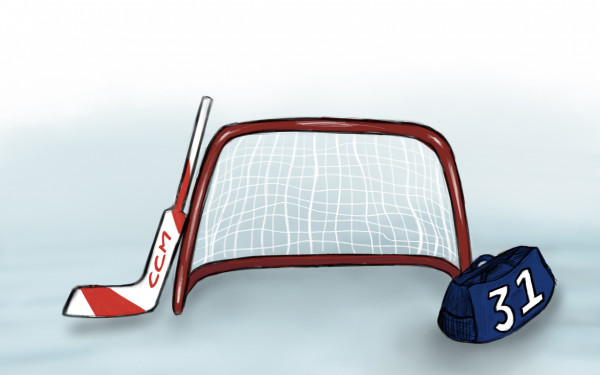Old Age Insecurity
Canada’s 20-Somethings vs. the Looming Retirement Crisis
In 1959, Canada welcomed 461,703 little bundles of joy into the world. This was our country’s biggest baby boom and, given declining birth rates, will probably hold down its place in the record books until the end of time.
But what’s really important is that there are only 12 years until those babies will turn 65—the age the government had decided that people have worked long enough and should enter into retirement.
And we are screwed.
This past week Prime Minister Stephen Harper infuriated old-timers and soon-to-be-old-timers across the nation when he suggested there’s a need to reform Old Age Security, which is a government program that provides seniors with a maximum monthly cheque of $540 or less, depending on income.
Unlike the CPP, where the payout is based on how much you’ve contributed over a lifetime, you only have to have lived in Canada for 10 years to collect OAS.
Most are speculating that some of these changes will come in the form of raising the eligibility age of OAS from 65 to 67.
But why should the youth of Canada care?
For the most part, we cannot picture a time when the endless beer pong tournaments and blatant disregard for sunscreen will actually be visible on our faces. We can’t imagine a time when the motorized scooters will become our reality… but neither did the acid-dropping baby boomers of 1959 and they’re a paltry 12 years from retirement.
It will happen. We will get old and sleepy and we won’t want to work anymore. But if pressure groups can stop this reform from happening,
our generation will lose the ability to complain about technology and those-damn-kids from the comfort of our living rooms. We’ll still be working.
So while organizations like the Canadian Association of Retired Persons have got a pretty aggressive bee in their bonnets about the two-year increase, they are selfishly throwing the very people they struggled to support under the bus.
It should be mentioned that I don’t have a vendetta against the elderly, they have raised and nurtured us and worked hard to do so. It is the elected government up to this point that has gotten us into a debacle.
Here’s what is going to happen in 12 years: mass retirement, huge gaps in the workforce, a crazy reduction in taxable income (less money, more problems), and a lot more people to support.
At this rate, we’re going to see a drastic reduction in benefits for our generation—if we get anything at all—and we probably won’t be getting any of the OAS that we’re paying into right now.
But we also aren’t entering the workforce as early as the baby boomers did. Our generation takes its sweet-ass time dawdling, married to ideas like “doing something we love” and “being happy,” which is not necessarily a bad thing—but means that we often don’t start really working until our mid-20s leading to less money in the current system and less contributed to our pensions.
Now, the program is costing taxpayers $36 billion and will skyrocket to $108 billion in 2030. Considering Canada’s entire federal budget this year is $235.6 billion, and there are no planned tax increases, it really puts things into perspective.
But it’s not like our country is actually saving the money that we are contributing to things like OAS and the Canadian Pension Plan in a special savings account that you are forbidden to withdraw from. They are spending it. They are overspending it—to the tune of a $29.6 billion, also known as the 2011 Canadian deficit.
Harper is spending money like a west-coast rapper on things like jets and jails set to be filled with the victims of legislative warfare.
So what does two years really mean?
It allows more people to replace the giant group of individuals that will stampede out of office buildings everywhere in a couple dozen years, and see two more extra years of solid contributions to retirement programs.
In a Jan. 31 article in The Globe and Mail, Brian Lee Crowley said that pushing the retirement age to 70 would be a more realistic policy, if we really want to support the younger population.
We are that younger population. We are the ones that are going to have to pay for these policy decisions out of the pockets of our skinny jeans.
And it seems counter-intuitive that just when we’re figuring out how to get a job, we also need to be considering how—and when—we’ll be getting out of having a job.
Harper is spending money like a west-coast rapper on things like jets and jails set to be filled with the victims of legislative warfare.

.WebEdit_895_600_90.jpg)
_600_832_s.png)

web_600_375_90_s_c1.jpg)


